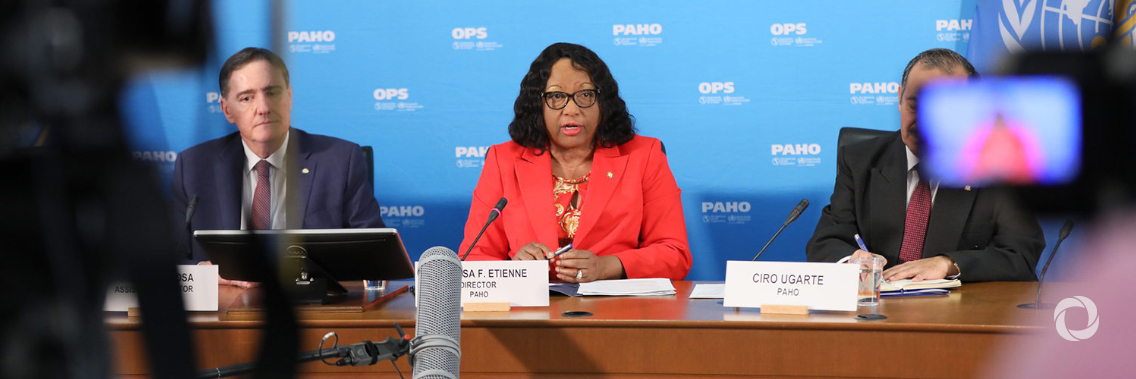Reopening societies before health systems are ready “would risk a handful of cases in one area becoming a full-blown outbreak,” PAHO Director Carissa F. Etienne said.
“As leaders across the world face pressure to resume social and public life, it’s important that they avoid making decisions in a vacuum. Data about the virus’s spread and the state of health systems and services must guide each country’s plans to reopen, including the mix of preventive measures that should remain in place to keep people safe,” she told a media briefing.
She said the basic principles of adjusting individual behavior, adapting spaces, and exercising political leadership are key to making transportation, workplaces, schools, and public spaces as safe as they can be for all.
The Americas reached two somber milestones this week, Etienne said, with over half a million deaths and nearly 15 million reported in the region.
“Countless people in our region remain vulnerable to infection, especially large populations that have not yet been exposed,” she noted.
“Countries must ensure they have the staff, tools and resources in place to monitor and contain the virus. They must be prepared to carry out tests, conduct contact tracing, isolate and quarantine, and ensure enough hospital beds are available to care for patients who develop severe symptoms.”
Individuals must be responsible and keep a safe distance from others, a proven measure to limit the spread of COVID-19, Etienne said, and “public spaces must also be adapted to reduce transmission. Simple, yet important measures like offering handwashing or hand sanitizing stations, and altering layouts and hours to allow social distancing and to limit the number of people in the same space at the same time should be the norm for now.”
Original source: PAHO

